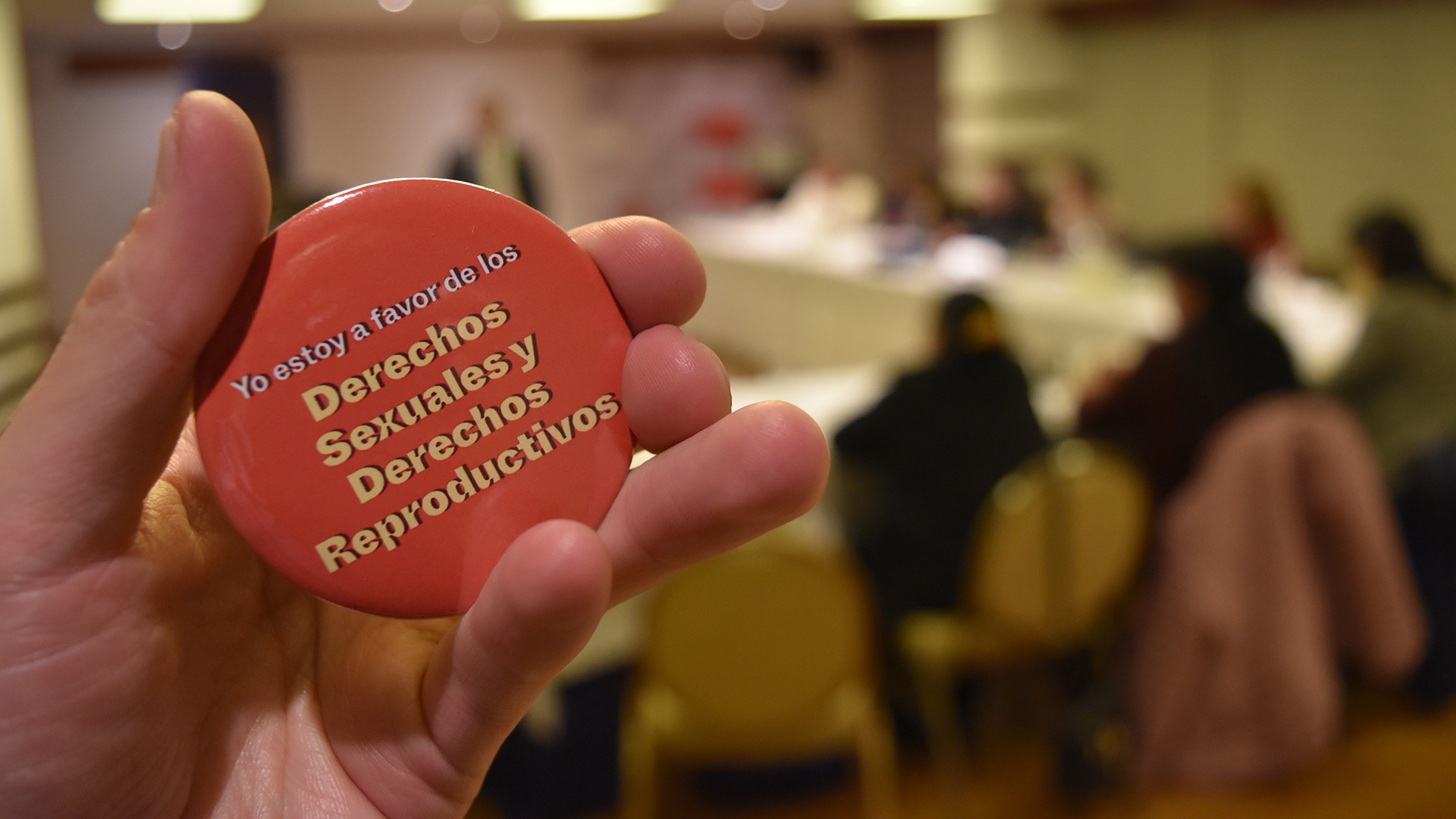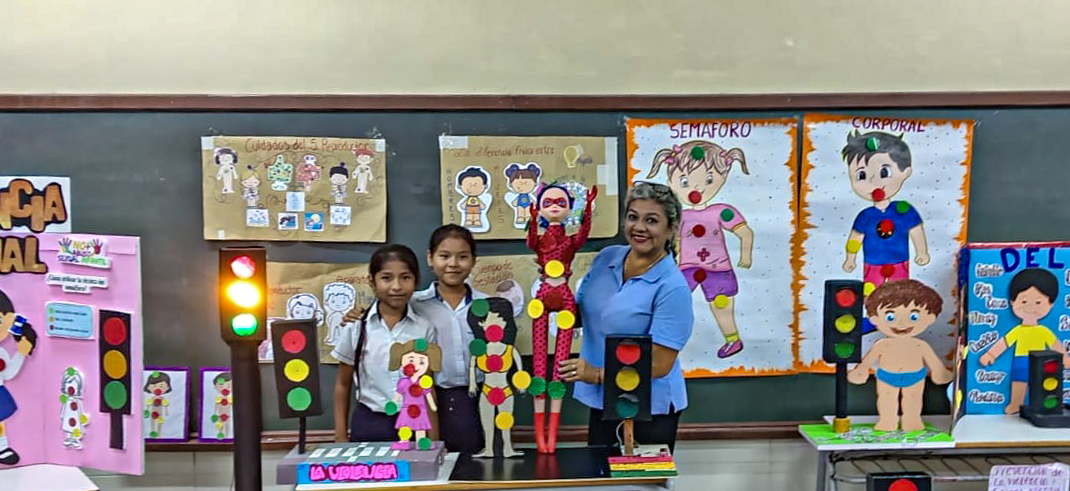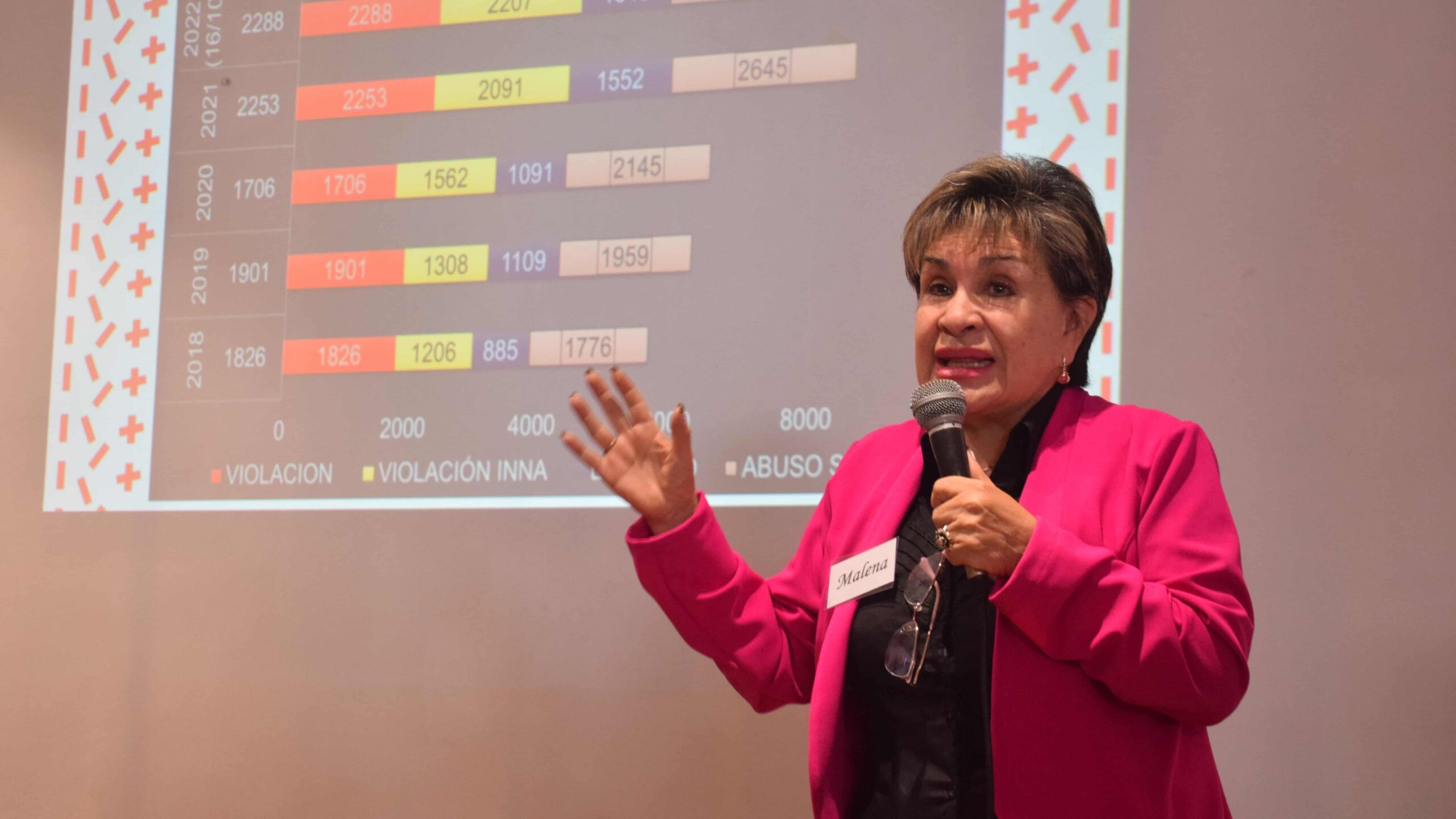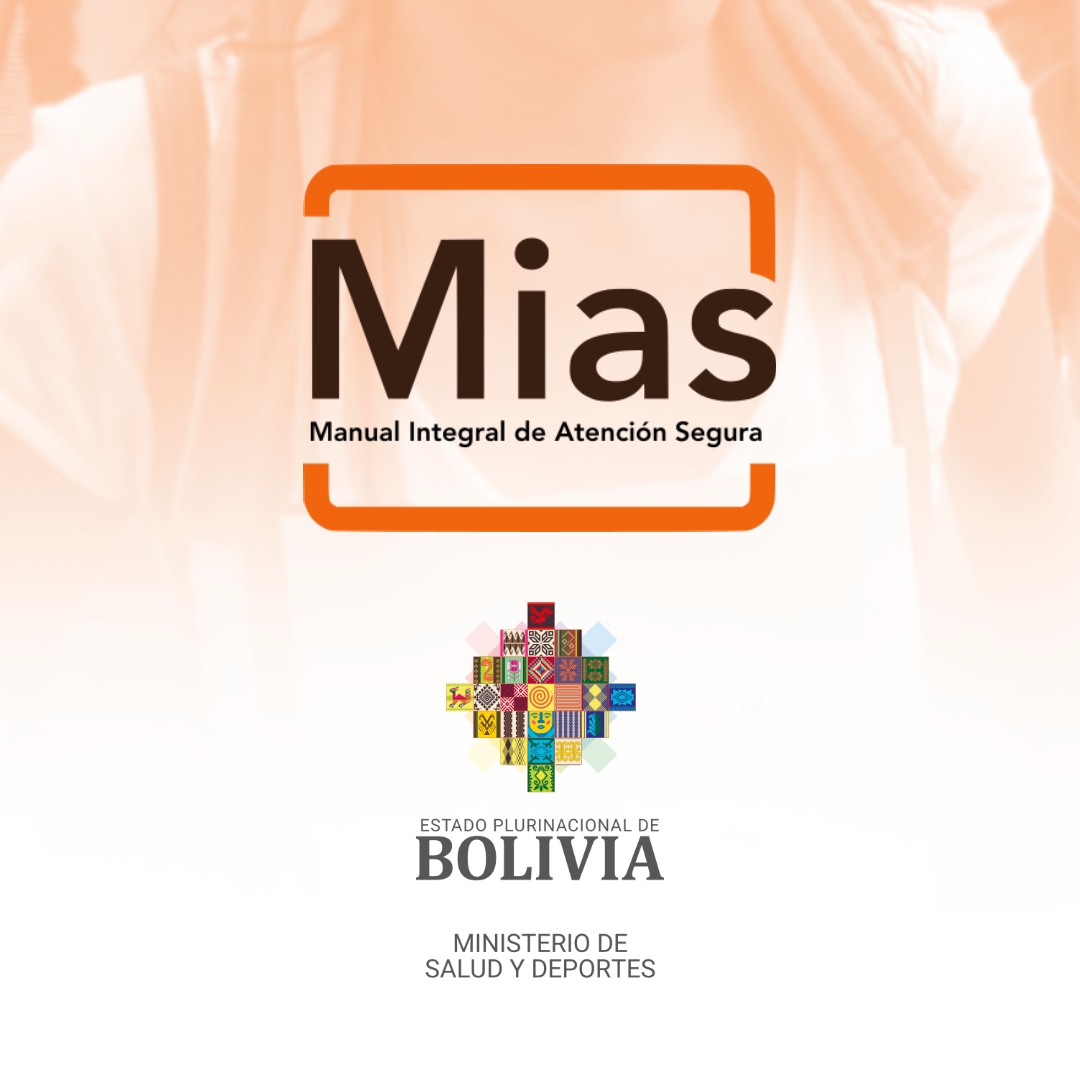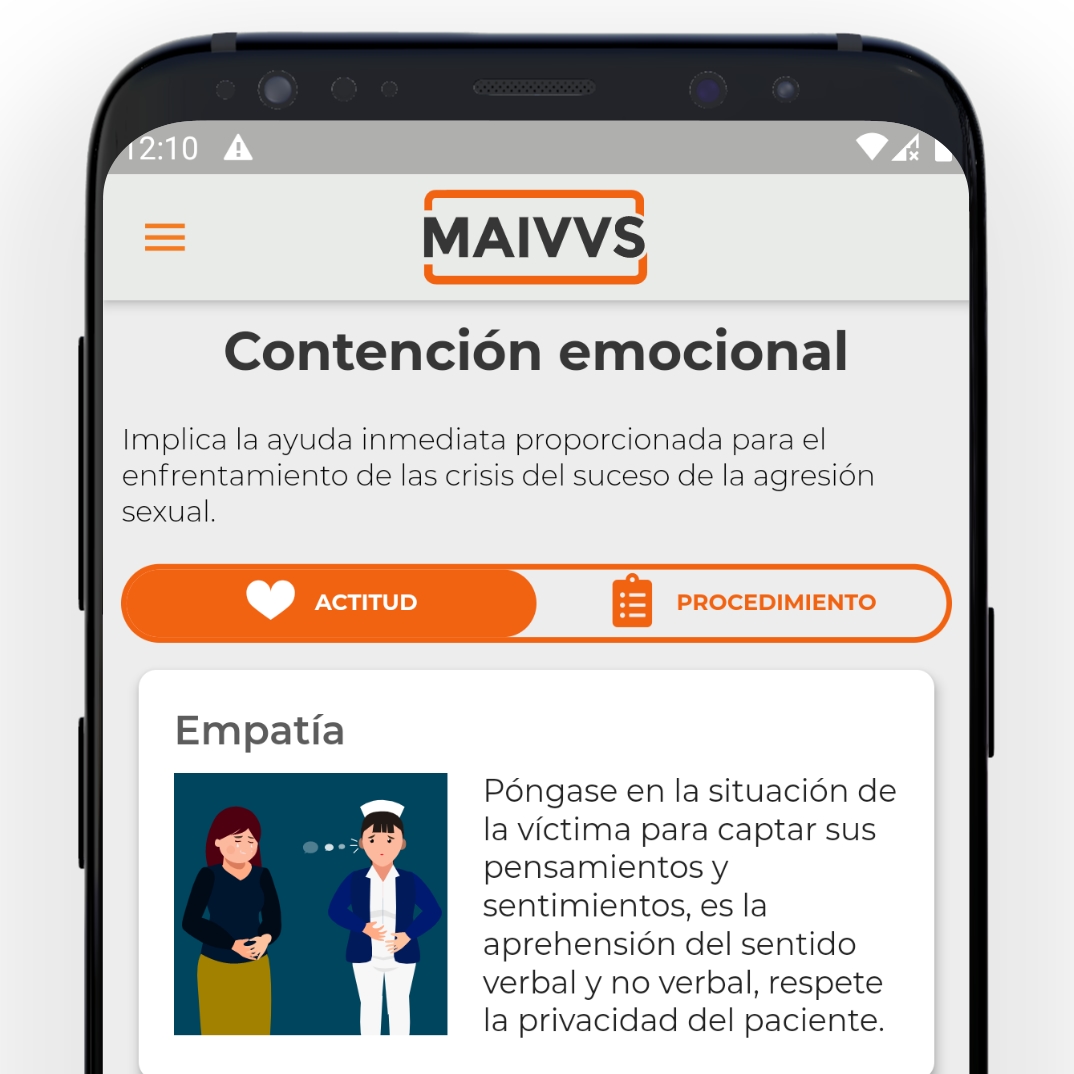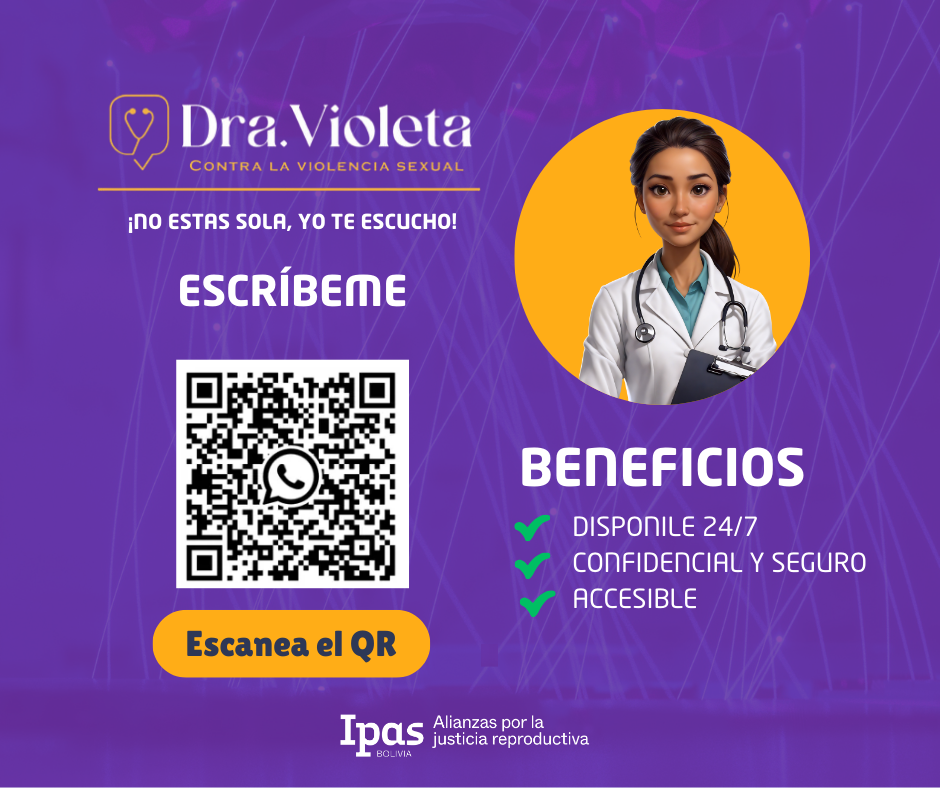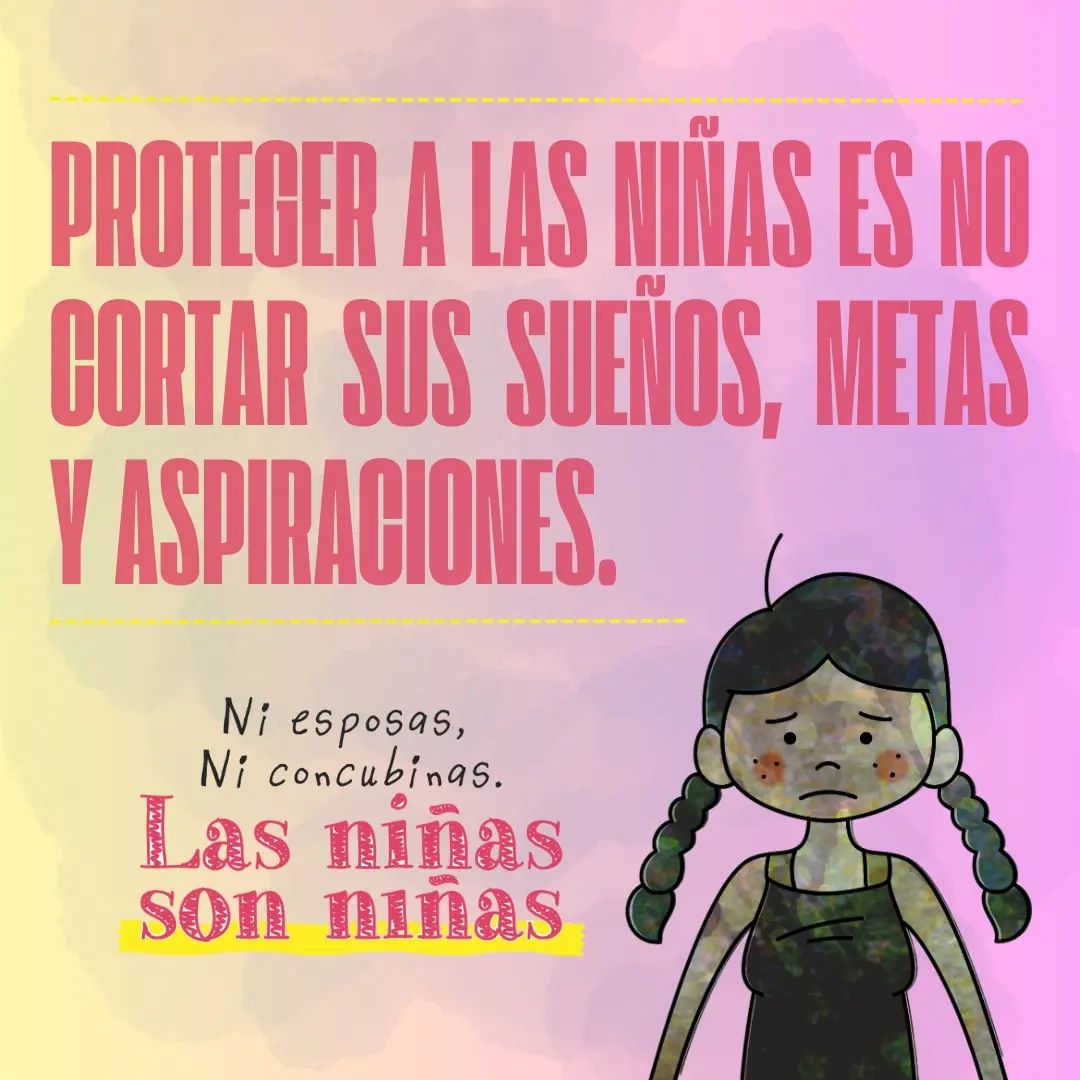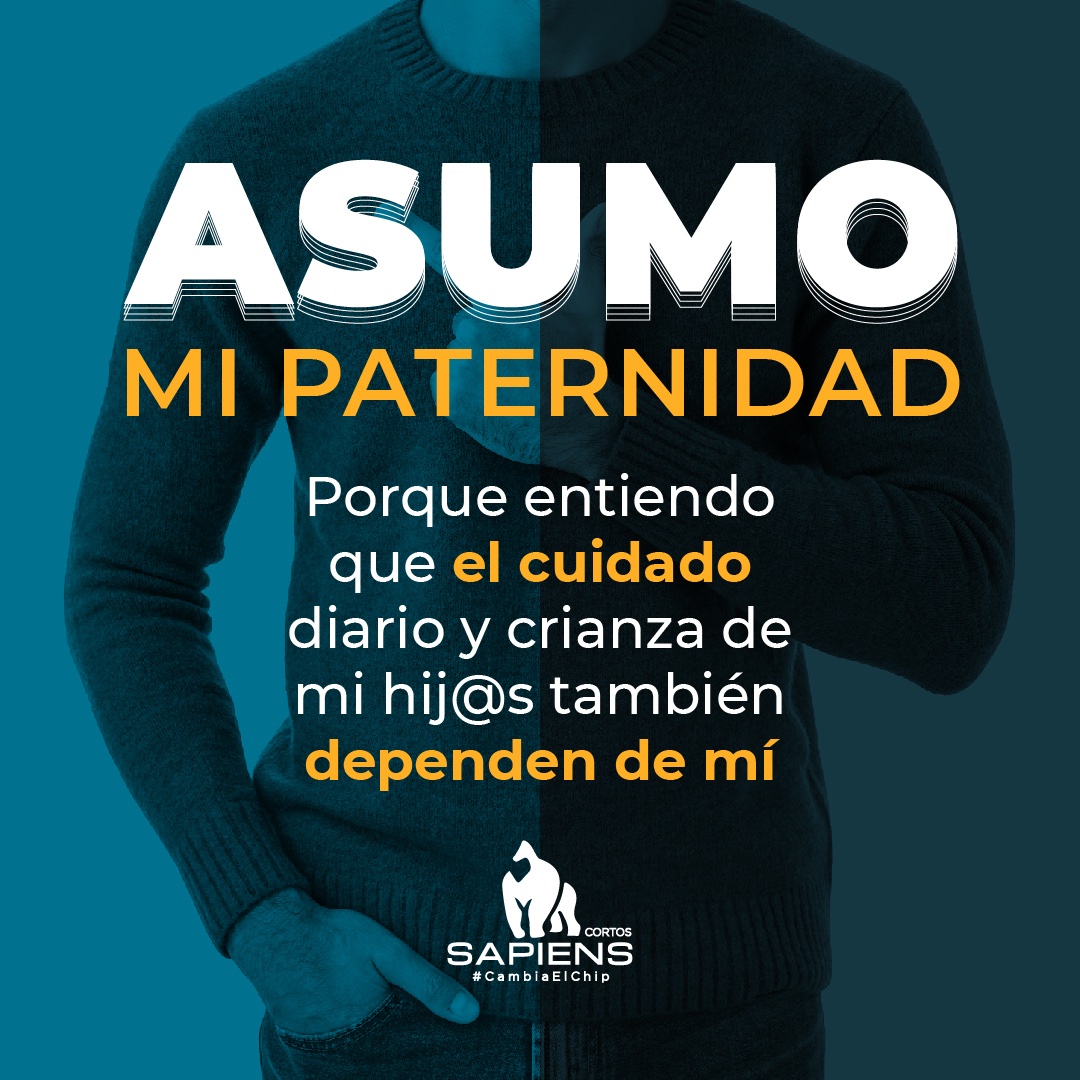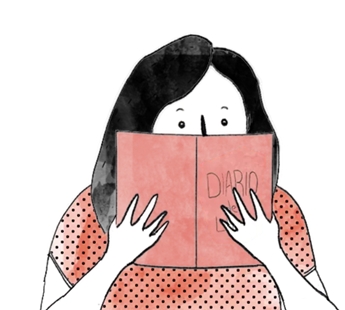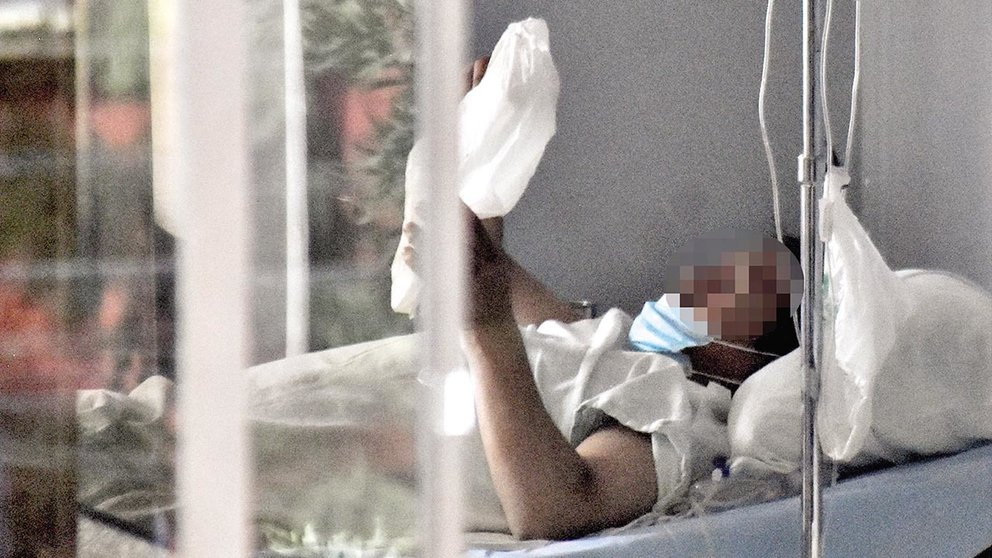Rosario (name changed) was discriminated against and mistreated a few years ago because she needed surgery and they did not want to perform it because she was diagnosed with HIV.
A couple of weeks ago, the results of the Community Observatory on access to health care for people with HIV or AIDS and people vulnerable to HIV were presented. It has the general objective of managing the claims referred to the obstacles that impede the access to integral health care for people with HIV, sexual diversities and sexual workers of both sexes in the department of Cochabamba.
It was learned that, in seven years, the Community Observatory registered 111 complaints from vulnerable groups such as people living with HIV or AIDS (PLWHA), sexual diversities and sex workers. Most of the complaints correspond to the health area.
The head of Health and Human Rights Projects of the Institute for Human Development (IpDH), Karina Rojas, described that there are volunteers who work in the area and guide those who feel their rights have been violated.
“Once this voluntary observer collects the complaint, he can fill out a form that we have had online during the pandemic; an individual accompaniment is made; the complaint is managed, evidence is collected of how this right has been violated and an analysis is made, of what has happened and where this violation or discrimination has occurred. Then, depending on the case, we even turn to the Ombudsman”.
The Community observatory has been operating since 2017. According to Rojas’ presentation, in 2017 there were 17 cases, in 2018 there were 5, in 2019 they reached 26, in 2020 there were 9, in 2021 they totaled 22, in 2022 they totaled 21, and in 2023 there were 11 complaints.
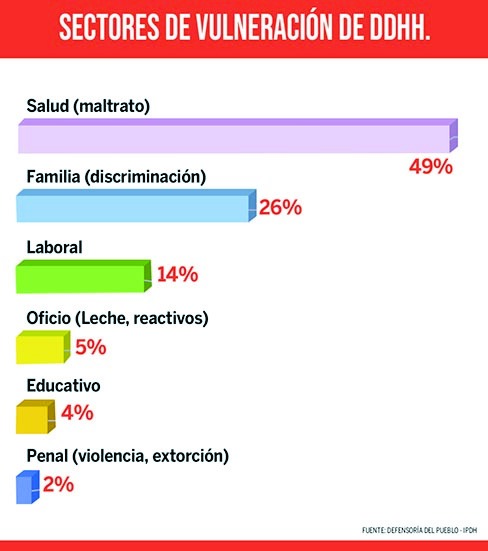
A WOMAN
The sectors of human rights violations are as follows: in health, 49% reported mistreatment; in the family with discrimination issues, 26%; in labor, 14%; in milk and reagents, 5%; in education, 4%; and in criminal matters, referred to violence and extortion, 2%.
The educator and facilitator of the Institute for Human Development (IpDH), Luis Fernando Cáceres, recounted the case of Rosario, who needed urgent surgery for an illness she had been suffering from for years. the doctor did not want to perform the surgery.
“With pressure, in quotation marks, we practically forced the doctor to perform the surgery (…). He had even been threatened and scolded. Sometimes a patient has to reach that level”.
The patient who was more timid at the time, according to Cáceres, is now a woman who demands that her rights be fulfilled.
“She’s a feisty one.”
According to the results of the Observatory’s complaints, the levels of care and violation of rights refer to 45.5% corresponding to the first and second level of health care; 36.4% correspond to the third level; Departmental Surveillance and Referral Center and 18.2% to the Departmental Surveillance and Referral Center (CDVIR).
In this regard, the deputy director of Viedma Hospital, Luis Patzi, said that seeing 38% of rights violations in the third level refers to “a large population”.
However, he emphasized that, together with the hospital director, they have been working on these aspects for more than a year.
“We applaud the Community Observatory volunteers for collaborating with patients. It would be ideal if they can grow and there are more volunteers.”
He described that there are cases in which the complaints are known, but the volunteers do not get to see the results.
“I know that they take time from where there is none to be able to help people on a voluntary basis (…). Demanding that the health budget grows is what we always ask for in order to be able to help more people. So, the commitment is from the Viedma hospital”, he said.
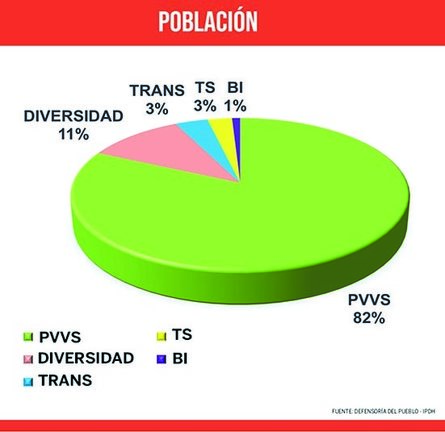
POPULATION
According to the Community Observatory report, 41% of this population corresponds to people between 30 and 39 years of age, 19% to people between 40 and 65 years of age, 7% to people between 1 and 19 years of age, and 28% to people between 20 and 29 years of age.
The cases refer to 82% of people living with HIV AIDS, 11% are sexually diverse, 3% are transgender, and 1% are bisexual.
A SOLDIER
A soldier diagnosed with HIV was recently exposed in front of the troops in a military unit in Bolivia, and “invited” to leave the barracks. His right to confidentiality was violated.
The representative of the National Network of People Living with HIV and AIDS (RedBol) in Cochabamba, Marcelo Cartagena, described the case of the 18-year-old soldier.
“He was given a rapid test in a military unit and tested positive. In the company, with his comrades, his superior said: ‘There is a person who has HIV here; then, we invite him to stand up and leave the barracks (…) It is not possible that a young man who has all the desire to serve his country has to be thrown out of the barracks; there is little information’,” he observed.
Rojas pondered the importance of reporting which, for many, is a difficult step. He added that there is a fear that confidentiality will be breached.
“At first, we try to verbally call for immediate resolution (of a case), and it’s not always going to go into statistics, because of confidentiality issues. However, giving information also that is what the volunteers do.”
A WORKER
A person diagnosed with HIV was violated in his labor rights in a company, from where they withdrew him and pretended not to pay him the benefits that by law correspond to him; they only offered him one thousand bolivianos. The Educator and Facilitator of IpDH recalled that they went to the “Community Observatory”; they filed a complaint with the Ministry of Labor. They coordinated with the Ombudsman’s Office and followed the process.
In the end, they obtained a fair compensation of approximately 50,000 bolivianos.
Ronald Céspedes Barriga, deputy delegate for the enforcement and exercise of the human rights of children and adolescents, women and vulnerable populations of the Ombudsman’s Office, praised the “good practices” regarding registration and accompaniment in the case of violation of rights, and suggested agreements to extend this type of work to the rest of the country.
“We are setting up ombudsman action plans for populations in vulnerable situations.”
The Cochabamba Departmental Ombudsman’s delegate, Marioly Álvarez, emphasized that the Observatory integrates qualities with a comprehensive social, family and health perspective.
“The Observatory also has a system that collects data and performs statistical work, which allows them to identify shortcomings, what needs to be proposed, how to work, and this is a plus that this Observatory also has”.
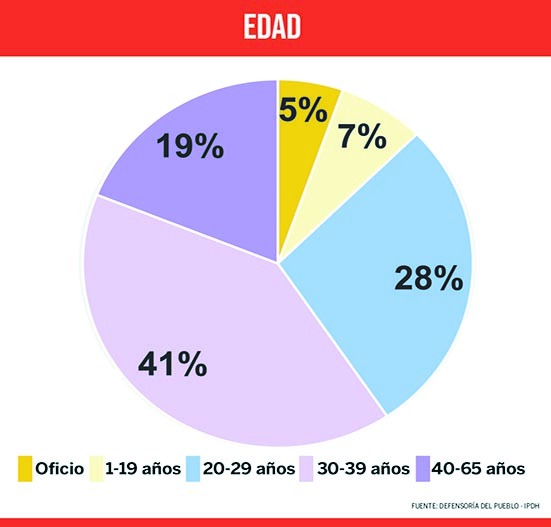
THE VOLUNTEERS
The volunteers were informed that they identified that issues such as health, “at some point”, are linked to discrimination.
“We try to accompany the patient and get him or her on the right track, so that the problem is solved. We make our reports on a monthly basis, through a report on how many patients we have accompanied, what activities we have carried out with the family members (…). And if the case arises, we file a report, fill out the form, and we direct them to the appropriate place. If it corresponds to the legal sphere, well, we refer it,” said one of them.
Another said that the work they do strengthens them as individuals. He recognized the need for community observers to spend more time in places such as hospitals.
“It is important to also put ourselves in the shoes of the people who are affected, to support them.”
They described the stories as being some sadder than others.
They called for more volunteers to join in these tasks.
“Unfortunately, there is a lack of personnel for us to reach more populations (…), to reach distant places. Many have to come here for treatment. They leave their families, and feel more alone”.
RECOMMENDATIONS
The result of the data obtained by the Community Observatory includes recommendations such as the implementation of comprehensive care programs for people with HIV and vulnerable persons, including massive and continuous prevention and education campaigns on stigma and discrimination of vulnerable persons; training of health personnel on the dignified and humanized treatment of people with HIV and vulnerable persons; to know and enforce current regulations to avoid violation of rights; to include the issue of HIV in the agenda of the authorities; to promote coordination and collaboration between civil society organizations, government institutions, the private sector and other relevant sectors; to provide friendly and differentiated care for the most vulnerable populations; and to expand the infrastructure to avoid overcrowding at the three levels of health care.
Cáceres remarked that health personnel must comply with a protocol for patient care, considering the specific needs of some populations; he added the need for infrastructure.
Meanwhile, the cases continue.

